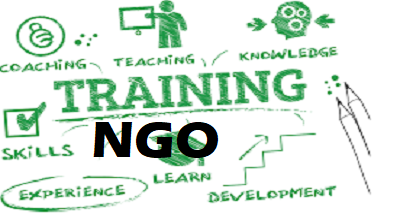NGO-Led Teacher Training
NGO-Led Teacher Training: Teacher training is a critical component of improving education systems worldwide. While governments and educational institutions play a significant role, Non-Governmental Organizations (NGOs) have emerged as key players in enhancing teacher skills, especially in underserved regions.
NGO-led teachers training programs focus on innovative methodologies, inclusivity, and technology adoption to bridge gaps in traditional education systems. This blog explores the latest trends, examples, and impacts of NGO-led teachers training initiatives.
The Role of NGOs in Teacher Training
Why NGOs are Essential in Teacher Development
NGOs bring flexibility, innovation, and grassroots-level engagement to teacher training. Unlike rigid government programs, NGOs can:
- Adapt quickly to local needs
- Implement experimental teaching techniques
- Focus on marginalized communities
Key Focus Areas of NGO-Led Teacher Training
- Pedagogical Skills: Training teachers in student-centered learning approaches.
- Technology Integration: Using digital tools to enhance classroom engagement.
- Inclusive Education: Equipping teachers to handle diverse classrooms, including children with disabilities.
- Community Engagement: Involving parents and local leaders in the education process.
Latest Trends in NGO-Led Teacher Training
Technology Integration in Teacher Training
Many NGOs now use AI, mobile apps, and online platforms to train teachers remotely. Examples include:
- Virtual workshops via Zoom or Google Meet.
- Gamified learning modules for teacher upskilling.
Focus on Inclusive Education
NGOs like BRAC and Room to Read emphasize training teachers to support special-needs students and gender-inclusive classrooms.
Community-Based Teacher Development Programs
Programs like STIR Education create teacher networks where educators share best practices and mentor each other.
Examples of Successful NGO-Led Teachers Training Programs
1. Teach For All
- A global network training teachers to work in low-income schools.
- Uses fellowship programs to place educators in high-need areas.
2. Pratham’s Teacher Training Initiatives
- Focuses on activity-based learning in India.
- Trains teachers to improve foundational literacy and numeracy.
3. Room to Read’s Literacy Program
- Works in Asia and Africa to train teachers in child-friendly reading techniques.
4. STIR Education’s Teacher Network
- Builds peer-learning communities for teachers in Uganda and India.
5. BRAC’s Shikhi Program (Bangladesh)
- Provides low-cost, scalable teacher training for rural educators.
Impact of NGO-Led Teacher Training
- Improved student performance in standardized tests.
- Higher teacher retention rates due to better support systems.
- Stronger community involvement in education.
Challenges Faced by NGOs in Teacher Training
- Funding shortages limit scalability.
- Measuring long-term success is difficult.
- Government policies sometimes hinder NGO operations.
Future of NGO-Led Teacher Training
- AI-driven coaching tools will personalize teacher training.
- Public-private partnerships will expand reach.
- Micro-credentialing for teachers will gain traction.
Conclusion
NGO-led teacher training is transforming education by filling gaps left by traditional systems. With continued innovation and collaboration, these programs can create a more equitable and effective global education landscape.
